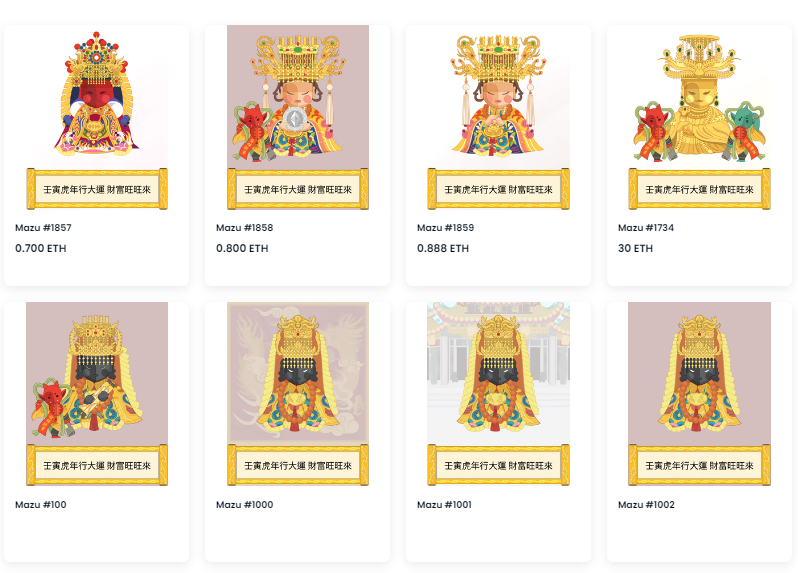The Dajia Jenn Lann Temple in Taiwan, which is dedicated to the popular Chinese sea goddess Mazu, is using non-fungible tokens (NFTs) to allow worshippers access to pilgrimages and other events.
The temple, which dates back to the Qing Dynasty in the 1700s, has been organizing an annual nine-day pilgrimage with a statue of the goddess that attracts hundreds of thousands of followers.
The pilgrimage and related festivals have created the “Mazu economy,” referring to donations and spending on Mazu-themed merchandise and business opportunities related to the religion.
In August, the temple began selling NFTs called MazuDAO through its e-commerce platform MazuBuyBuy, which act as a priority pass for the Spring pilgrimage.
So far, the temple has sold more than 2,800 NFTs. According to estimates, the nine-day pilgrimage can generate over $163 million in spending, and on the day when Mazu returns to the home temple, it attracts around 500,000 people.
The NFTs are particularly appealing to younger people who are joining the pilgrimage, according to the vice chairman of the board of the temple.



